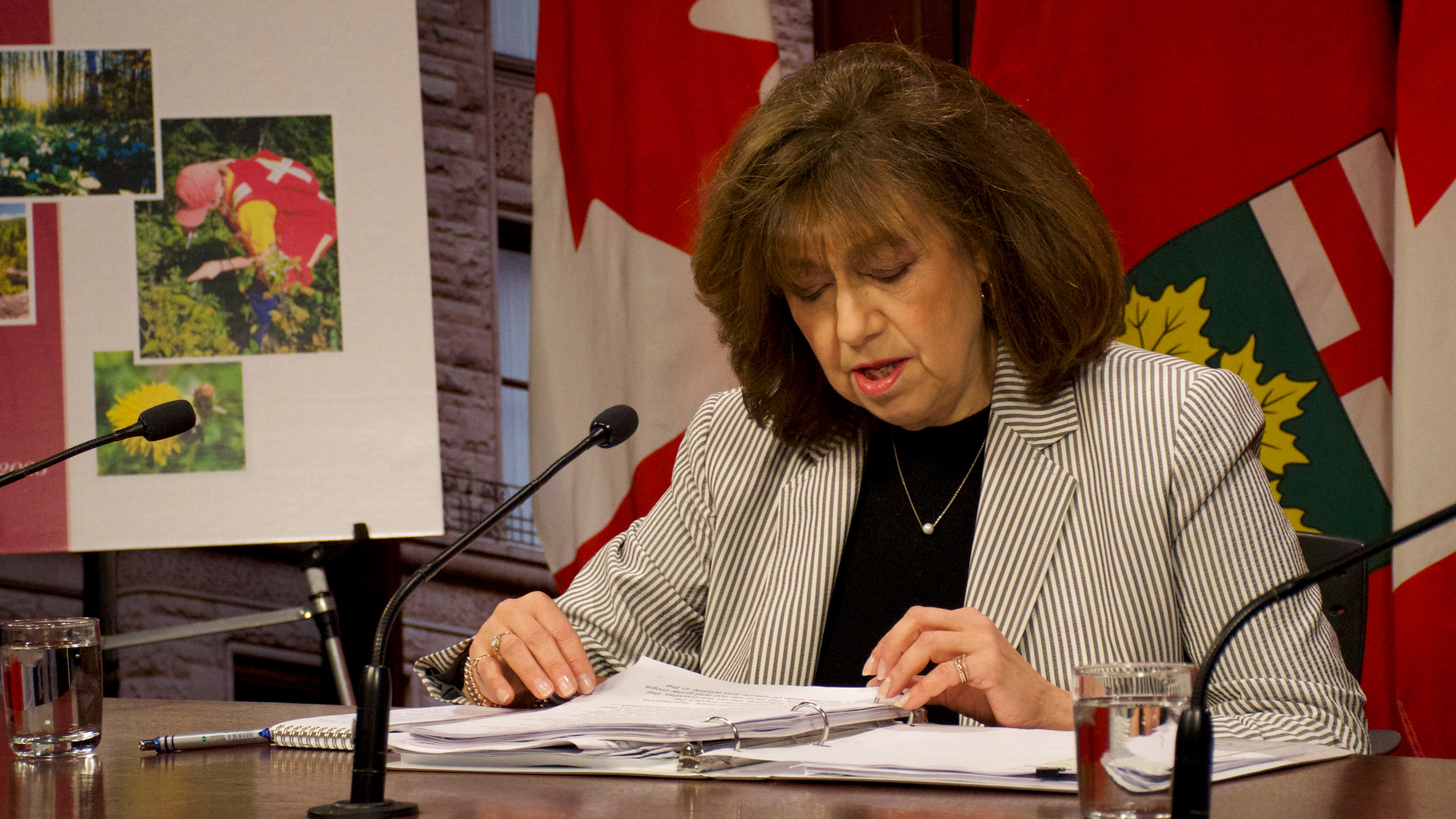Ontario’s Auditor General has released a report on the province’s progress in protecting the environment.
“Government decision-makers, businesses, citizen groups and the public need a clear picture of whether our air, water, soil and wildlife populations are getting better or worse,” Bonnie Lysyk said on Tuesday.
“This is the type of reporting the province could be providing to the public demonstrating how well Ontario is doing in protecting the environment for future generations.”
The report gathered information from various government agencies and sources and presented a comprehensive analysis of the condition of Ontario’s air, water, land, waste, climate, and nature and wildlife.
According to the report, Ontario’s air quality and the Great Lakes’ water quality have improved significantly over the past few decades.
Improved pollution-control equipment for vehicles and industry, reduced air pollution from industrial sources and the phase-out of coal-fired electricity all contributed to better air quality.
The report, prepared by Lysyk and by Dr. Tyler Schulz, the province’s Commissioner of the Environment, aims to bridge the information gap caused by the lack of environmental reporting and consolidated information by the province.
In a news release, Lysyk said while ministries produced various reports on different aspects, there is a lack of readily accessible and consolidated information to give the public a comprehensive overview of Ontario’s environment.
Though the concentration of many contaminants like fine particulate matter, sulphur dioxide and nitrogen dioxide, has decreased in past decades, the concentration of ground-level ozone that can trigger breathing problems is showing an upward trend.
There is also steady progress in the province’s ongoing effort to clean up historically contaminated hotspots in the Great Lakes.
However, Lake Erie and Lake Ontario are experiencing more frequent algae blooms and increasing threats from microplastics.
The report said though the percentage of waste diverted from the landfill has increased from 19 percent in 2002 to 29 percent in 2020, waste sent to landfill remains over 8 million tonnes per year.
At current waste generation, diversion and export levels, the current landfill capacity can only accept 10 to 13 years more waste.
The report said Ontario has set a target to reduce provincial greenhouse gas emissions by 30 percent below 2005 by 2030.
In 2020, the province’s emissions have already down by 27 percent.
However, the global increasing level of greenhouse gas emissions is altering Ontario’s climate, causing more frequent weather-related disasters, like severe rain and ice storms.
In the preservation of nature and wildlife, the report shows an alarming rate of deforestation in Ontario.
The annual loss of hectares due to deforestation is nearly four times higher than the number of hectares newly established as forests.
The report said the government failed to continue restoring the wetland habitat in southern Ontario as planned in 2017.
“Although the Natural Resources Ministry set targets in 2017 to halt and reverse the net loss of wetlands in Southern Ontario, it hasn’t tracked progress and the targets are no longer in effect,” Schulz said in a media conference yesterday.
He said to adapt to climate change, Ontario must protect the wetland to prevent flooding.
Ontario Nature’s Conservation Policy and Planning Manager, Corina Brdar said it is not surprising to find the government fails to commit to its targets.
“The Ontario government has scrapped previous commitments to nature and wildlife and hasn’t set any new ones, which makes tracking progress (or lack thereof) difficult,” Brdar said in an email to Humber News.
The Green Party of Ontario and MPP for Guelph, Mike Schreiner released a statement in response to the release of the report.
“This government has thrown out its own targets on restricting wetland loss while simultaneously ramping up attacks on conservation authorities and on our Greenbelt,” Schreiner said.
He said communities, especially family farms, are bearing the brunt of climate disasters, including rising temperatures, droughts, wildfires and floods.
“This is a government that does not care about our province’s environment, or the real risks communities are facing due to their pave-at-all-costs approach,” Schreiner said.

